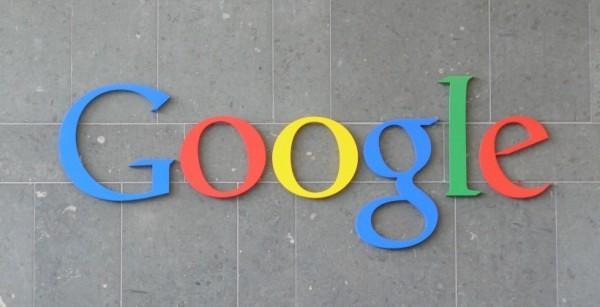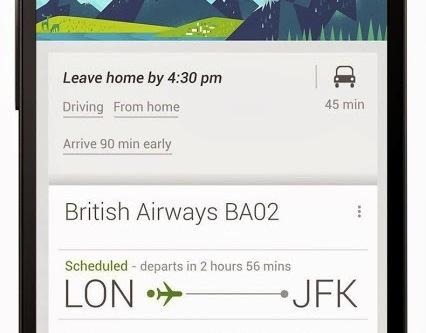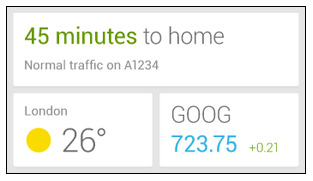Google Now Bucks The 'App Empire' Trend, But Will You Still Use It?
Quick, rattle off everything Google Now does! Unless you've been keeping a close eye on all the changes, you likely can't. The service is adding features at an alarming clip, with recent tweaks like offline cards, hotel info, and parking reminders being among the more useful features we've seen added in quite some time. Now is definitely cool, but is it getting it right?
Let's try this again — quickly name everything Snapchat does. The messaging platform does three things, but it does them well. Prior to a few days ago, Snapchat only did one thing, but it did it perfectly. Other services like Foursquare are also splitting up their app to offer unique, singular services to us.
Facebook is another example of an "app empire", as the social giant has been slowly taking apart their services, offering them up as individual apps. Messenger, Facebook paper, Instagram, and WhatsApp are all under the Facebook umbrella — but remain wholly different services. They can be updated individually, and managed separately if need be.
The trend of splitting services into standalone apps is trendy, and pervasive. We also see various Android OEMs taking services from their proprietary skins lately and sticking them in the Play Store. The move there is one that makes them nimble when it comes to updates, and more responsive to customer wants and needs. Camera app buggy? Update it without having to re-tool your whole OS skin. Brilliant.

In a time when everyone (including Google, who take their various Android services like the camera and put it in the Play Store) are splitting their stuff up, why is Google Now cobbling more in? Every week the search skin packs more utility, adding to an exhaustive list already in place. Get reminders, see sports scores, find movies in your area — it's endless.
The reason others play the "divide and conquer" game is fairly evident. In examining Facebook, we see a service that has four or five apps, and continues to grow via an in-house app development branch. They also have their own ad network, which aims to allow Developers a monetization strategy for their apps. Those ads will likely make it to one or more of Facebook's apps (our money is on more), meaning Facebook has diversified their own app revenue stream.
Others simply want to vie for real estate on your screen. Foursquare's now duopoly of apps could have easily been a single entity, but they chose to make it a duo. Doing so gives them the opportunity to keep us engaged on several levels; we may lose interest in checking-in, but may still use the chat/friend finder app. Foursquare takes up more screen real estate, and we use at least one of their apps — possibly.

Google Now is on a different level, though. The service started as a Search skin, but has evolved into much more. It's nearly a standalone service, but lacks both of the attraction listed above — it's not directly monetized with ads, and it has no screen real estate via an app. Some Nexus phones can take advantage of a Google Now launcher, but the service still remains largely clandestine.
We're also not sure of what exactly Google Now does, making it different things to most people. Whereas I may use it to set reminders, it's likely another user wouldn't know the service even offered such functionality. I'd contest that most use it as a voice search tool, likely not even being aware it does simple things like suggest topics based on recent searches.
It would seem Google Now is being prepared as its own platform, but that still doesn't solve the monetization or real estate issues. Given the underlying voice control, Google Now is likely more for wearables than your beloved smartphone. It is also why the service remains clandestine when it comes to your home screen; a lightweight solution to tie us into Google's core, which is Search.

We don't see ads in Now, but we do see the service tying directly into Search. Google makes a bulk of their earnings via Search, and that's almost entirely due to ads. They have been making big strides in search of late, even gobbling up a company that aims to predict what's next for retailers and shopping searches. In creating a platform (Now) that feeds us directly to their ad machine, Google has gone the opposite direction of the Facebooks of the world.
While others are taking things apart to create more ad space, Google is funneling us into their single greatest monetization strategy. Rather than create a separate app dedicated to things like "Now Hotels" or "Now Movies", we're being funneled into search straight away, which has ads — ads we'll probably click on. Ads Google gets paid for, especially when we click on them.
Better yet, Now straddles platform lines others clearly define and delineate. We can have Now on a smartphone, heads-up display, or wearable, and the experience is essentially the same. Android Wear is highly Now dependent, and the voice recognition lends itself to just about any platform.
We will take umbrage with Now's usability in some cases, and the breadth of services offering is hard to keep track of. The choice to go with an all-in offering in Now is against the grain, but could end up standing the test of time. As other ad networks like Facebook's can easily be sidestepped and fall prey to changes in trends, Google forcing us into search with Now is good for the bottom line. It's just not as clean and useful as it could be, and that could be its undoing.
